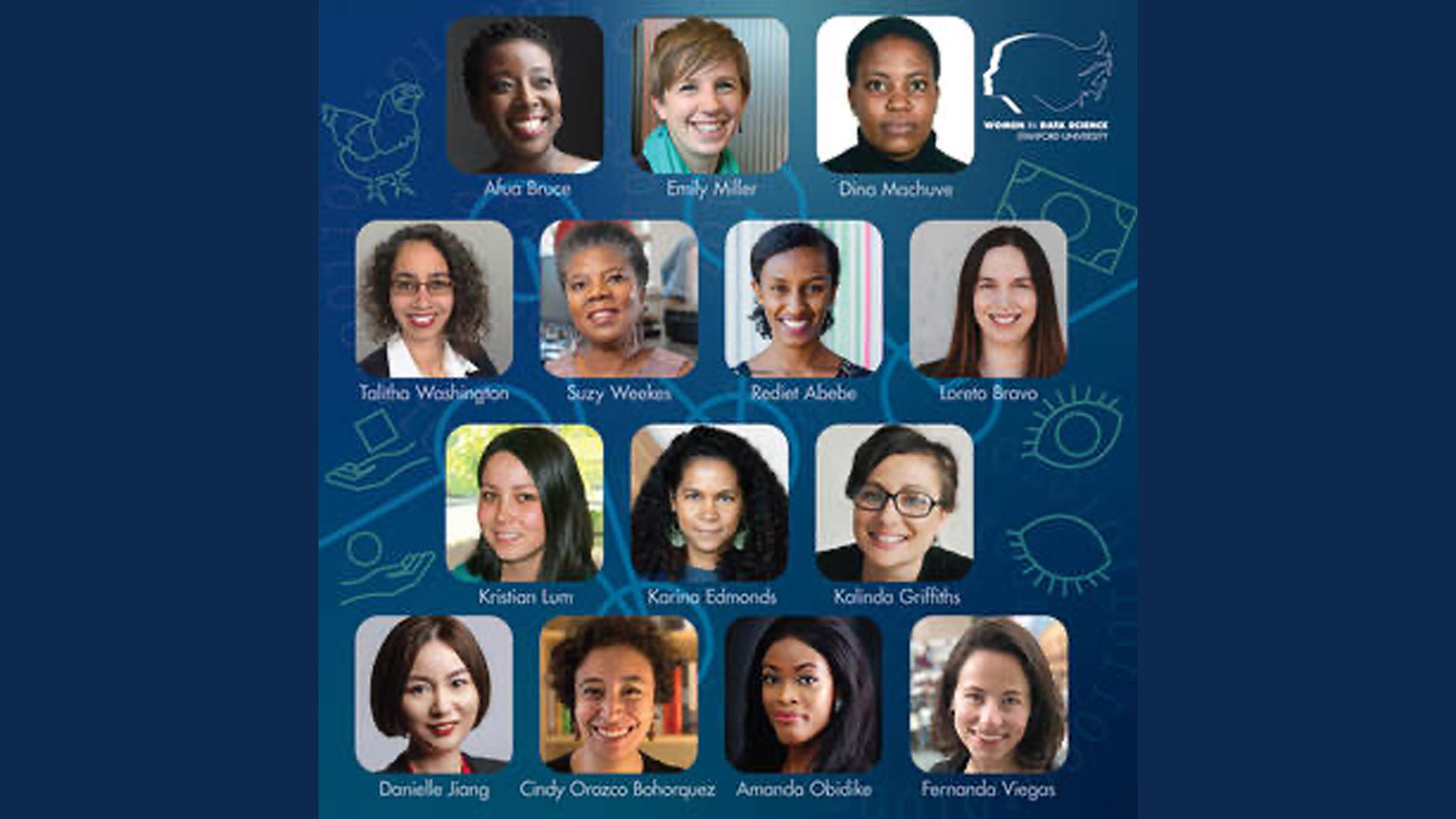Our dedication to diversity has been built into all the WiDS initiatives. For example, the WiDS ambassador program welcomes people from all genders, ethnicities, backgrounds, and geographies to host WiDS regional events that highlight hundreds of women globally every year. The WiDS Datathon also welcomes all participants, with teams from more than 85 countries tackling social good challenges. In addition, the resources in the WiDS Education Outreach program, featuring a broad mix of speakers, are now serving diverse communities worldwide.
We will continue to do better.
In the past year we have made some progress, making a concerted effort to highlight more underrepresented Black, Hispanic and Indigenous women in our events and programs. As a result, 25% of the speakers during WiDS Worldwide, our 24-hour virtual conference, were Black, Latina, Hispanic, or Indigenous. Here are some examples:
During her Opening Address, Suzanne Weekes, Executive Director of SIAM (Society for Industrial and Applied Mathematics) and Professor at Worcester Polytechnic Institute explained how healthy data science thrives on diversity and new perspectives.
The Diversity and Data Science Education panel, moderated by Talitha Washington, Director of the Atlanta University Center Data Science Initiative. Talitha was joined by Karina Edmonds, VP and Global Lead for Academies and University Alliances at SAP and Loreto Bravo, Director of the Institute of Data Science at the Universidad del Desarrollo in Chile.
In our Democratization of Data panel we featured Amanda Obidike, an award-winning social innovator, technologist and data scientist who oversees sustainable community projects and STEM Education across 19 Sub-Saharan countries by preparing the next generation of Africans with STEM lucrative skills for Africa’s workforce.
Dina Machuve of the Nelson Mandela African Institution of Science and Technology delivered a technical talk about improving livestock health with deep learning.
Afua Bruce, Chief Program Officer at DataKind, participated in the Paths to Leadership panel.
Fernanda Viegas, a principal scientist at Google who is from Brazil, delivered a technical talk on Data Visualization as Exploratory Medium.
Cindy Orozco Bohorquez, a Colombian Stanford ICME PhD student, delivered a technical talk on What does it means to have a robust algorithm? as well as a workshop on Parallel Computing.
Kalinda Griffiths a data scientist and indigenous woman (Yawuru) from Australia, discussed her work to make sure that Indigenous people are included in government statistics.
This year, we strengthened our focus on bias, ethics, and fairness as an integral part of all our WiDS initiatives, to ensure that our topics and speakers are meaningful and relevant to all, including:
The WiDS Worldwide conference panel on Ethics and Responsible Data Science discussed questions of ethics as we recognize that the data we gather has consequences on other people’s lives and the environment, and how we need to proactively address those implications.
The conference also featured several technical talks that focused on fairness. Danielle Jiang Assistant Director, Monetary Authority of Singapore, talked about assessing fairness of AI systems in financial services and Rediet Abebe delivered a technical talk on the roles for computing in social justice.
The WiDS Podcast featured Kristian Lum, a statistician and research assistant professor at the University of Pennsylvania, discussing her work in fairness and transparency about algorithmic fairness and predictive policing in Applying Statistics to Promote Fairness and Transparency.
Emily Miller from DrivenData delivered a WiDS Workshop on Actionable Ethics for Data Scientists in which she illustrates the different types of ethical concerns that arise in data science work, grounding these in concrete examples of times where things have gone wrong.
In addition, we are currently conducting research to assess barriers for all women in pursuing graduate programs, and are engaged with organizations that focus on under-represented minority students.
We will continue to do better.
In the coming year, and beyond, we will continue to showcase diverse voices and trailblazing role models, and bring more light to issues of bias, ethics and fairness in data science.
We remain committed to these critical efforts, and we welcome you to join us. We invite you to participate in our events and programs, and to share your thoughts, perspectives, and suggestions.
Margot Gerritsen, Karen Matthys, and Judy Logan
Co-Directors, Women in Data Science (WiDS) Initiative
Stanford University


